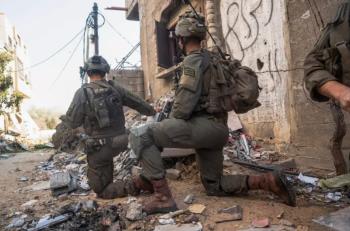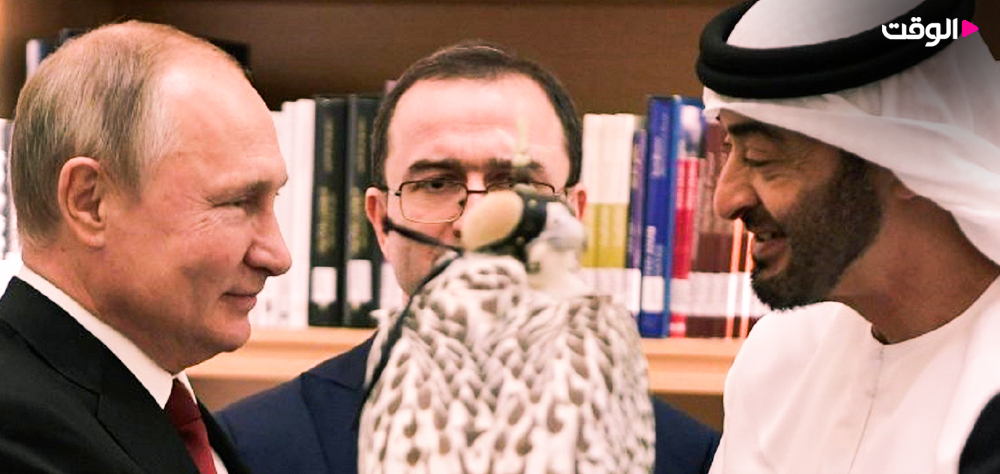Alwaght- These days, as Russia and the West are at each other's throats over Ukraine crisis, and their confrontation even evokes the memories of the Cold War, the critical situation is expected to leave impacts on the international order in a variety of ways.
Meanwhile, the coincidence of the West-East confrontation with the period of emerging dynamism in West Asia as an important competition field for the past century accelerates and influences the developments.
One of these changes is the gradual transformation in the foreign policy and strategy of the Persian Gulf Arab monarchies based on the developments in the regional and international order. Despite the definition of their economic, political, and military interests in alliance with the West, they have embarked on a policy of non-alignment to the Western approach on Ukraine crisis.
Although this strategic shift is observable in the behavior of Arab countries, the UAE's contradictory reaction to anti-Russian resolutions at the UN and the Security Council, at short distances, is a clear example of Abu Dhabi efforts to adapt to political dynamics of transition to a new international order. The UAE is trying to modify its policies in the light of the new circumstances and to pave the way for the preservation of its security and economic interests and regional position.
Abu Dhabi foreign policy before and after 2011
Following the 9/11 attacks, the UAE, to demonstrate its strategic partnership with the West, embarked on US "counterterrorism" strategy, hastily issuing a statement against extremism and violence, and severing ties with the Taliban government in Afghanistan in 2000. This integration into the US strategy went deeper during Washington's invasion of Iraq in 2003, the military occupation and overthrow of the Ba'athist regime. Saddam Hussein rule was seen by the Persian Gulf monarchies as a counterweight to Iran. So, its absence gave reason to the Arab rulers to merge into anti-Iraqi alliance for a replacement.
But the starting point for a gradual shift in the UAE ruler's' view of relying solely on the US and the West was marked by the emergence of revolutionary movements in the Arab world known as the "Arab spring" or "Islamic awakening" and the Obama administration's "pivot to East" policy according to which Washington defocused West Asia in its foreign policy and instead concentrated on containing China.
Indeed, while Washington is increasingly reluctant to engage militarily in regional crises and seeks to delegate its security responsibilities to regional allies, through forcing Arab states to normalize relations with the Israeli regime, the UAE by considering Muslim Brotherhood as a threat across the Muslim world since 2011 began to review its policy and rethink its alliances. Under the new policy, the Emiratis chose active involvement in regional competitions and expanding influence in the region in the form of participation in the anti-Yemeni coalition or military assistance to one side of Libyan civil war.
Perhaps the major event that accelerated this approach was the observation of the disgraceful US military withdrawal from Afghanistan, which cast doubt on the Persian Gulf states' future military and political reliance on Washington and the West.
Although the UAE joined the so-called US-led alliance for protection of international navigation in 2019, signing a strategic alliance with China that year and then moving toward pragmatism in its relationship with Iran as the country's largest economic partner in the Persian Gulf and also de-escalating with the Syrian government showed that Abu Dhabi has prioritized its economic and geopolitical interests. Abu Dhabi also defused tensions with Ankara, which were the defining feature of the relations with Turkey, with the two capitals witnessing exchange of visits by high-ranking officials, the latest of which was President Erdogan's visit to Abu Dhabi on February 14.
Reversing its "Western-centrality" policy, the UAE moves to agreement and understanding with the actors in Libyan and Syrian crises to make sure it can realize its economic ambitions. Regarding Iran, if the anti-Tehran sanctions are lifted by revival of the 2015 deal, Abu Dhabi can secure substantial economic interests and achievements. Improved business ties with Turkey, too, would secure enormous economic interests to Abu Dhabi.
Ukraine crisis and strategic horizon vacuum in UAE foreign policy
In Ukraine crisis too, the UAE is following a middle course, adopting neutrality in a confrontation of giants, as do others like Saudi Arabia, and Egypt.
Just contrary to the Western allies, Russia and China do not interfere in the home affairs of the allied states especially for human rights. This is while military sales and political supports to the Arab countries are influenced by the US's home policy factors. With Russia increasing its share in global arms market, the Arab countries are shifting to Moscow as military deals with it require less commitments and terms. From 2014 to 2018, Russia's arms exports to West Asia and North Africa increased by 16 percent compared to 2009 to 2013, and last year, after the UAE suspended the purchase of F-35 fighter jets from the US, Moscow offered to Abu Dhabi joint production of Russian state-of-the-art SU-75 Checkmate stealth fighter jets.
But by measuring the results of this approach by Arab countries like the UAE it can be suggested that it is not flawless and continuation of security vacuum and an absence of consensus on international cases strikes Abu Dhabi leaders with strategic confusion in foreign policy and regulation of relations with the West and the East, the example of which is contradictory UAE performance concerning Western-pushed anti-Russian resolutions at the UN General Assembly and Security Council.



























